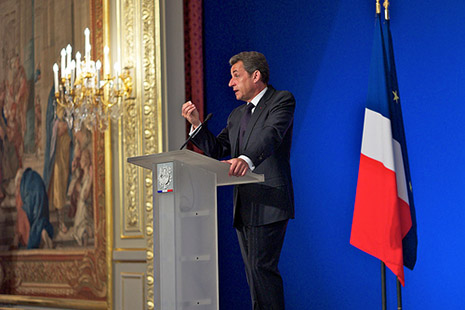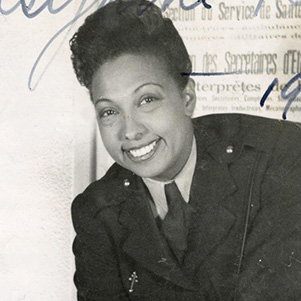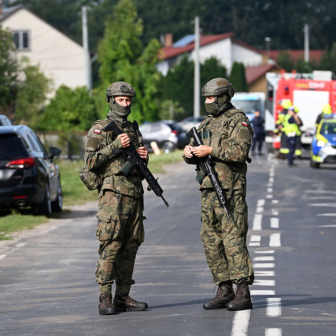EACH time I return to Paris, a city I lived in for three years, I’m struck by what seems like a pervasive lethargy. Catching up with friends usually does nothing to mitigate the feeling. Anecdotes about frustrations at university or in the workforce remind me of why I was able to pack my bags and turn my back on an ambition that had been the focus of my entire adult life. Paris can be a daunting place for a young person seeking a foothold, and many of my friends are looking beyond the ville lumière in search of a less sombre existence.
Nicolas Sarkozy was supposed to drag France’s economy, at least, out of its sluggishness. It seemed to me that he was elected not so much because the left–right pendulum happened to move in his favour, but because he had a reputation for being able to get things done. He certainly made things happen in his personal life. In his first months in office, he left the wife who had campaigned by his side for the model and singer Carla Bruni and was photographed aboard a super-yacht belonging to a French billionaire. The public was not amused. His popularity slumped and has remained chronically low.
A few commentators have seen the Libyan intervention, in which Sarkozy has played a key role, as a desperate attempt by the French president to reverse his political fortunes. Edwy Plenel, former chief editor of Le Monde and now head of Mediapart, wrote a scathing article accusing Sarkozy of “Napoleonic atavism” in having, “from his first day in office,” sought a war “to silence internal opposition.” Opinion polls suggest that the majority of the French do indeed support the action against Gaddafi, and it’s this mood that I was keen to understand during this visit to Paris. What I didn’t expect was that even some of my most left-wing (and usually articulate) friends would struggle to express a firm opinion on the intervention. The French media has also generally fallen into line with the president.
There seems little doubt that Sarkozy sees the Libyan crisis as an opportunity to win back support among France’s voters. Action is central to his political identity: “four years of action” sits at the top of the list of policy portfolios on his official website, ahead of the usual categories like education and justice. Yet he has flexed France’s military muscle – first in Afghanistan, then in Georgia – without any significant boost to his popularity.
Observers may be right to say that the Libyan intervention is to Sarkozy what the Falklands war was to Margaret Thatcher. But the lack of any real debate on the military deployment in Libya suggests that something else is at work. Some of the most prominent political acts of Sarkozy’s career relate either to North Africa or to the tension with France’s large Muslim population. Both are tied up with France’s difficult, ambiguous relationship with its colonial history. This ambiguity gives him free reign in territory where he can appeal to the far right while confounding the left, whose relationship with this past and present is, if anything, the most fraught of any section of French society.
ONE of the defining moments of Sarkozy’s rise to the presidency were the riots that spread across Paris’s northern suburbs, the banlieues, in late 2005. The youths involved were mainly immigrants, or the children of immigrants, from France’s former African colonies. Sarkozy, who was interior minister at the time, took the gloves off. He made news by threatening to clean out the suburbs with a Kärcher – one of those yellow, high-pressure hose units – and calling the rioters that most taboo of words, racaille, which can loosely be translated as scum.
The controversy generated by his inflammatory approach allowed him to forge a reputation as a man who got things done, and it was clear that the far right was listening. In the presidential elections in 2007, Sarkozy attracted the votes of both the centre and the far right. Jean-Marie Le Pen, leader of the far right Front National, ended up with just over 10 per cent of the first-round vote. For Le Pen, this was a significant drop from the previous presidential election in 2002, where he won almost 18 per cent of the final vote and finished ahead of the socialist candidate and incumbent prime minister, Lionel Jospin. Sarkozy’s election victory indicated that many who had voted for the Front National in 2002 felt satisfied with his performance, particularly when it came to sensitive social issues.
Another example of Sarkozy’s decision to operate in the North Africa policy frontier was his proposal to found what was then called the Mediterranean Union. The idea was to create a new geopolitical fulcrum centred on the nation states bordering the Mediterranean Sea. In its original form, controversially, it would have excluded Germany, France’s major counter-balance in the European Union. Sarkozy presented his vision for the Mediterranean Union during a visit to Dakar in his first year in office. His speech was an astounding throwback to the colonial era. Addressing himself to the African youth, he explained that Africa’s problems were all because it had never taken part in “History.” According to the president, its peoples were too busy looking back, nostalgically, at a lost past. He urged African youths to heed his words, take pride in their culture and step up to play a role in the History that had always passed their continent by.
The Dakar speech has been extensively criticised, but perhaps the most effective antidote to its paternalistic and patronising tone is to read it as a statement about Sarkozy’s conception of post-colonial France rather than its ostensible subject, Africa. Reading the speech in light of Sarkozy’s first term in office, it is difficult not to feel that he was in fact lamenting a France no longer capable itself of creating “History.” France is no longer the major world power that it once was, and the French language is no longer a lingua franca. In this sense, Edwy Plenel’s reference to Napoleon was on the mark. Viewed as the latest in a sequence of political gestures relating to North Africa, the Libyan intervention seems to be about more than just using a war to keep the voters on side.
THE revolutionary waves that spread from Tunisia throughout the Arab world have proved without a doubt that the youth of Africa are capable of making even Sarkozy’s sort of History. Sarkozy seemed to be taken by surprise. The French government’s scandalous dealings with Ben Ali, the deposed Tunisian leader, demonstrated that its sympathies were not with the popular movements. The French government was not, of course, alone in being caught off guard. But Sarkozy was shown up perhaps more than any other head of state when Gaddafi, reacting to the UN Security Council resolution to enforce a no-fly zone over Libya, came out and said that his “friend” – yes, he meant the French president – had “gone mad.”
Given the apparent contradiction in the president’s stance, it is striking that neither the French left nor the French media have challenged Sarkozy over the Libyan intervention. Regardless of whether military action was right or wrong, why was the deployment not debated in a country that wholeheartedly supported Chirac when he opposed George Bush’s plans to invade Iraq? Granted, Obama is no Bush; but were the crimes that Saddam Hussein perpetrated against his own people any less grave than Gaddafi’s? There may be something of a generational shift at work in French politics. After all, Chirac – like Mitterrand before him – was involved in the Algerian war, and this experience may have informed his opposition to the Iraq campaign. Sarkozy has had no such experience of combat.
This cannot explain, however, why the French left has failed to challenge Sarkozy on this issue. The left’s failure to come up with a coherent, independent position seems symptomatic, at least to some extent, of the general malaise concerning France’s colonial history and its present-day consequences. France’s history of immigration has been and still is neglected in the school curriculum and in public discourse. Instead, strong republican values, including the ideal of assimilation, tend to set the parameters of debates about issues such as the wearing of burkas. These values are an integral part of France’s identity and the French are right to uphold and defend them. But history also shows the danger of seeking to apply these values universally. It is well known that the French left was, on the whole, no more supportive of Algeria’s war for independence than the right, because Algeria was, quite simply, part of the French Republic. That was only fifty years ago. Nobody on the left would pronounce such a sentiment today.
Ségolène Royal, who lost to Sarkozy in the presidential election, went to Dakar in 2009, two years after the president had made his infamous speech, and took the opportunity to apologise for his words. But it is perhaps telling that her own attempt to engage with the issues Sarkozy had been so upfront about was clumsy, wavering between the abstractly intellectual and the overly emotive. Royal was born in Dakar, and made a great deal of her African childhood. Despite this, her speech lacked a palpable sense of connection to the place and the issues she was purporting to address, while her emphasis on her childhood memories seemed empty given that her parents moved back to France when she was only two years old.
Sarkozy no doubt came to his position on the Libyan crisis with domestic political considerations in mind. But what distinguishes the Libyan intervention from his other military exploits is its relationship to the ambiguity that is North Africa, where Sarkozy, action man, can do as he pleases. The left simply has no coherent intellectual platform from which to engage with him. It’s yet another reminder, as though one were necessary, of the political potency of history. •




